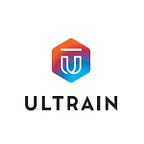On the evening of November 10th, Berlin time, Ultrain’s chief cryptographer Husen Wang and Germany’s hub leader of Ultrain, head of consumer management from BMW Group’s digital services, Alex Wolfson jointly hosted a small technology developer meeting in Berlin.
As one of the top four European economies with steady growth, Germany has always demonstrated its extraordinary vision in the field of blockchain technology, a country at the forefront of crypto. Germany is the first country in the world to recognize the legal currency status of Bitcoin. To prevent industry chaos, the German government has also made their effort to upgrade their regulation. While China is still in the process of forming the boundaries and setting up-regulation, Germany is already preparing for a series of blockchain compliance.
Therefore, Germany is also one of the communities that Ultrain needs to focus on. As early as May of this year, Ultrain held an eco-community event in Munich, Germany, and invited many top corporate executives for an offline meetup event.
This time, Ultrain’s chief cryptographer Husen went to the German technical developer meeting. As a member of the Ultrain’s core team, Husen has a very professional background in cryptography. He has studied cryptography during his undergrad and graduate time at Beijing University of Aeronautics and Astronautics and Tsinghua University. During his time ant financial’s blockchain department serving as a cryptographer, he is responsible for the blockchain-related cryptography frontier technology follow-up, including zero-knowledge proof, secure multi-party computing, homomorphic algorithms, etc., as well as cutting-edge technical analysis and monitoring of consensus algorithms. For example, various PoW algorithms, Algorand, Thunderella, and other algorithms, participate in the design of business privacy protection schemes for many large projects. During his work in Europe, he was mainly responsible for algorithm improvement and privacy protection applications for fully homomorphic encryption technology, the design of multi-party computing privacy protection scheme based on the blockchain, and design of security hardware related algorithms. Also, he also proposed and participated in 10 blockchain patent inventions.
In this activity, Husen introduced Ultrain’s overall technical architecture and proposed Ultrain’s R-PoS consensus mechanism and zero-knowledge proof, true random number generator, and anti-quantum wallet. Participants conducted in-depth exchanges. David Taylor from detection asked about innovative issues on consensus. Husen replied that Ultrain’s R-PoS is more secure than Dfinity’s consensus, because Dfinity has the characteristics of bls signature mallable, which may make beacons less secure; in addition, the group’s private key may be stolen by free joining and exiting; The security of group signatures is challenging to quantify and cannot be compared to the bitcoin PoW analog. R-PoS is more efficient than Algorand, because the number of proposers can be precisely controlled, avoiding network crashes, and using the original random number algorithm is more efficient. At the same time, the BFT process introduces the voter reward mechanism, which is more secure than other PoS algorithms. Regarding network communication, communication delay and bandwidth delay are reduced by layer0’s optimization. Compared to other existing public chains, Ultrain also has a unique random number generator, zero-knowledge proof, anti-quantum wallet, and other components will create a unique DApp application.
There are two other two HR application developers from Europe, Gust CEO Denis Wegner and Business&Strategy Sven Weidner, are concerned about the impact of the GDPR policy on the blockchain. In this regard, Husen said: Ultrain has a zero-knowledge proof component, and any user data can communicate with the blockchain in a non-public zero-knowledge proof, thus avoiding the leakage of private data.
Juliana from the investment company is concerned about Ultrain’s public line and mining issues. Compared with traditional PoW, PoS does not have the use of computing power to mine, all the rewards are proportional to the enthusiasm of the tokens and participation of the users, and the computing resources are more used in the execution and verification of the contract. For reference, Ultrain’s test network is now online, and the public network will go online next year.
The small-scale exchange activities of the Berlin offline developers were very successful. The participants focused on the technical issues and conducted in-depth discussions and exchanges with each other. As a right blockchain technology company, we are very excited to launch such an event.
Ultrain has always been a public chain company focusing on global expansion. In addition to communities such as Germany and the United States, we have also expressed our determination to build a deep community in Korea (for details, please refer to Ultrain Seoul Station officially unveiled, the site is packed). Today, we have partnered with BlockDaily, Korea’s top blockchain media, and our official website has also launched our Ultrain banner to attract more blockchain followers to join Ultrain’s Kakao group (Korea’s mainstream social media) and Ultrain. Deep communication!
